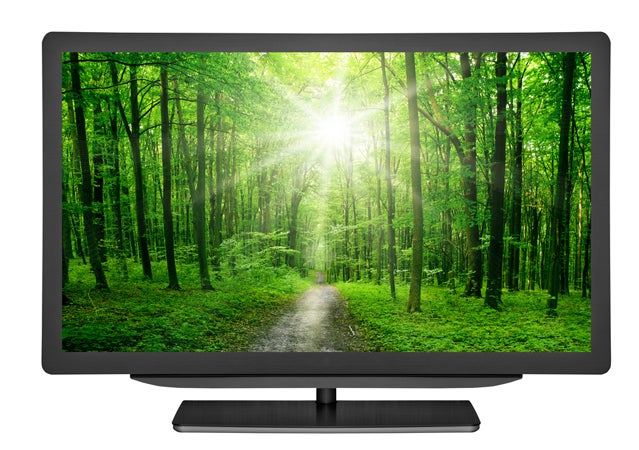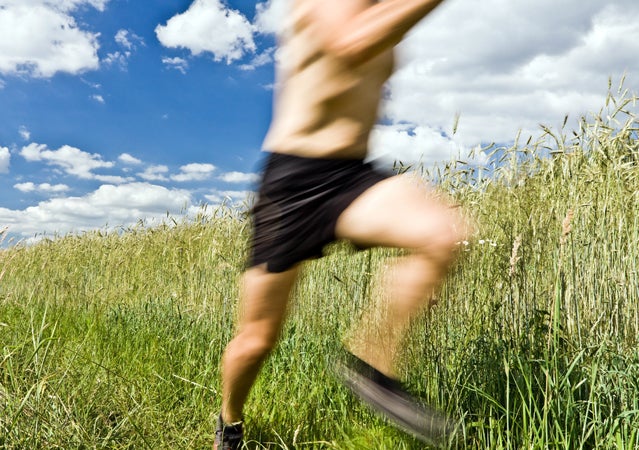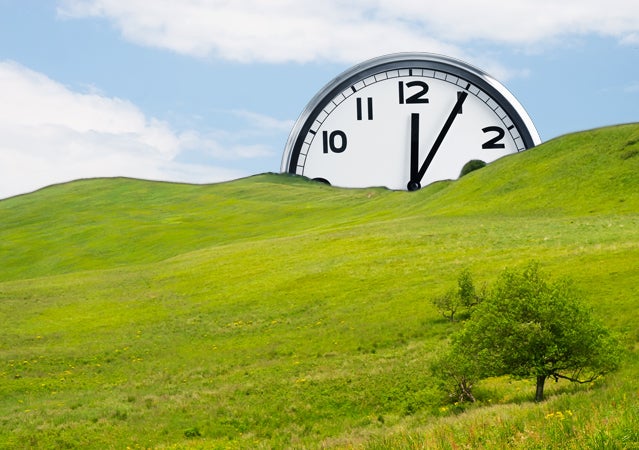Florence Williams went to the forests of Japan to uncover the science behind the health benefits of mother nature. For those of you without the time to travel deep into the Japanese wilderness, here are six quick, easy, and natural ways to help your body and mind.
Temper Your Screen Time

What happens to a mind in constant motion? That’s a question we seem intent on answering, one laptop and DVR at a time. In a now famous, years-long study of employees at the Boston Consulting Group, led by Harvard Business School professor Leslie Perlow, 26 percent of participants admitted to sleeping with their smartphones within reach. Fifty-one percent said they check email obsessively while on vacation. Kids are even worse. According to a 2010 survey by the , American teens spend about 7.5 hours a day toggling between text messages, Instagrams, and streaming episodes of Jersey Shore. This nonstop engagement changes how the brain processes information—and, in some cases, changes the brain itself. One alarming study of Internet-addicted Chinese teenagers found signs of “abnormal white matter structure”—atrophy of connective tissue—in areas of the brain involved with behavior and emotional control.
The cure is, quite literally, out there. “An expanding literature suggests that exposure to nature—either a walk through a park or looking at nature photographs—can enhance attention and memory,” says Arthur Kramer, director of the Beckman Institute for Advanced Science and Technology at the University of Illinois at Urbana-Champaign.
DO: Escape the city. In a 2008 study, volunteers who ambled through a campus park for 50 minutes aced subsequent tests of attention and recall, compared with their performance after walking down busy streets.
�ٰ���’T: Just dose with the Discovery Channel. Canned nature offers fewer psychological benefits. In a 2007 study, 90 young adults completed an on-screen test while seated beside either a window with a view, a blank wall, or a plasma TV displaying nature scenes. The group near the window had the fastest heart-rate recovery after the stress. Those near the TV were no less anxious than those faced with a blank wall.
Get Dirty

As hunter-gatherers and then settled farmers, humans touched, breathed, swallowed, and co-evolved with a broad range of microbes, says Graham Rook, professor emeritus of medical microbiology at . These bugs—from gut flora and probiotics to bacteria and parasites—came to play an important role in regulating our immune system. They became, Rook says, our “old friends.”
But in today’s sterile urban environments, we’ve reduced our exposure to these microbes—and there’s substantial evidence that we’re paying for it. According to the hygiene hypothesis, a theory held by many immunologists, our modern estrangement from these organisms may be contributing to an explosion in allergies, asthma, and other serious illnesses. One new study in Finland found that teenagers living near forests and farms harbored a different composition of microbes on their skin than their counterparts in built-up areas. The rural kids showed higher levels of a blood marker of immune-system robustness and a significantly lower incidence of allergies. Clearly, we miss our old friends.
DO: “Make contact with natural habitats,” suggests Ilkka Hanski, professor of evolutionary biology at the , who led the Finnish study. Take your kids to a farm or forest. Root in the dirt. Bring soil home to add to your garden.
�ٰ���’T: Stop showering. “If we relax hygiene, we will not re-encounter the old friends,” Rook says. “We will merely expose ourselves to new enemies, such as E. coli ���ٰ������Բ�.”
Go Blue

Greening our lives is a good start, but we need to blue them, too. New research suggests that water may be a key element in the natural world for psychological well-being. When researchers in Exeter, England, showed a group of adults a series of 120 photos of urban and natural scenes both with water (rivers, lakes, oceans) and without, the subjects greatly preferred the images with water, even if those scenes also showed buildings and streets. In fact, they liked cityscapes depicting water as much as they did majestic but more arid natural scenes, including forests and mountains. There seems to be some intangible tug to water, says Mathew White, a lecturer at the , who led the study. “People report better moods when taking a walk near the coast than in many nature areas,” he says.
Those living near the ocean also tend to be healthier than those living inland, a separate 2012 study by White and his colleagues found. Using British census data, they established that “good health is more prevalent the closer one lives to the coast.” Similarly, a 2010 review of the mental-health benefits of being outside concluded that any exposure to natural space improves mood but that proximity to water significantly magnifies the effect. The more blue you incorporate into your life, the less blue you may feel.
DO: Hike trails near rivers, oceans, or lakes instead of those lacking aquatic views, suggests White. The benefit is slight—a “1.5 percent added difference in health” at best, he says—but it’s also relatively effortless.
�ٰ���’T: Just look—listen. In a 2010 study, volunteers who were played recordings of a fountain and birdsong after a two-minute math test recovered more quickly from the stress than those who heard only background noise.
Train Naked

These days, it’s the rare outdoor athlete who isn’t plugged into something: heart-rate monitor, iPod, power meter, GPS unit…. The assumption is that these gadgets improve our performance or experience or both. But there’s good reason to question that. First, we’re better at listening to our bodies than we thought: new research shows that people’s sense of how hard they’re working out is a more reliable indicator of their personal heart-rate maximum than the charts they might use to set up a new monitor. And second, electronics subtly reshape the very experience of being outside, says Jason Duvall, a researcher at the . Duvall asked sedentary urban adults to take three 30-minute walks a week; some were told to walk for exercise, others were given awareness plans to actively engage with nature. They “listened to birdsongs,” Duvall says, smelled the air, or noted types of trees and flowers. The latter group reported stronger feelings of well-being after their walks and higher satisfaction with the environment. Furthermore, says Duvall, when you strap on a monitor or pop in earbuds, the electronics serve as “a tacit admission that what you’re doing is exercise and therefore boring.” The continuous stream of data keeps forebrains humming, so there’s little cognitive downtime, and the restorative effects of quiet and greenery are, at best, blunted.
DO: Leave the gadgets at home—at least once in a while.
�ٰ���’T: Just use the outdoors like a gym; you need to purposefully engage with the natural world. Says Duvall: “It’s amazing how much wildlife you can find” during a jog in a city park if you mindfully look for it. And keep your ears open, which was the favorite engagement strategy of the subjects in his studies. “You have no idea how many things there are to hear outside until you start seeking them out.”
Find Your Rhythm

Human sleep-wake cycles are set mostly by the sun. Light levels filtered through the retina send messages to the pineal gland, which pumps out or dials back on melatonin, the hormone associated with sleep regulation. Without sufficient exposure, melatonin levels are disordered, and our body’s innate rhythms are thrown out of whack. Disruptions in circadian rhythm have been linked to cancer, diabetes, obesity, and, in the short term, declining athletic performance and mental fog and gloom.
Natural light “of sufficient intensity and suitable spectral composition” is the main factor in regulating our circadian rhythms, according to a 2012 study of workers at the North and South poles. During dark polar winters, researchers found, a one-hour pulse of bright artificial sunlight in the morning was enough to stabilize workers’ circadian rhythms.
But we need darkness, too. Too much light, particularly at night, throws off our internal clock, as a series of recent experiments at in Troy, New York, make clear. In the study, college students used backlit tablets for two hours before bed. Afterward, their melatonin concentrations dropped 23 percent.
DO: Soak up the sun. Those rays enable your body to synthesize vitamin D, a nutrient many of us are deficient in. A 2009 study of distance runners found that 40 percent had suboptimal levels of vitamin D. But a mere five to 30 minutes a day of ultraviolet radiation is sufficient for vitamin D synthesis, according to the study’s author, associate professor D. Enette Larson-Meyer.
�ٰ���’T: Bring your iPad to bed. Mariana G. Figueiro, director of the at Rensselaer, recommends “reducing use of self-luminous displays at least two hours prior to bedtime.”
Take Five—Minutes or Days

Five minutes is all that’s required to achieve the minimum effective dose of nature immersion to raise your spirits. So says Jules Pretty, professor of environment and society at the , who synthesized the results of nearly a dozen studies for a comprehensive 2010 review of nature’s effects on the body. “All outside activity offers mental and physical benefits,” says Pretty, adding that the majority of them are gained by simply walking out the door. The first five minutes have the greatest impact, his review found; people’s moods continue to lift from minute six on, but not as much.
If even short outdoor breaks can reduce stress, imagine what a week in the wilderness can do for your mind. In a 2011 pilot study of 57 adult participants, University of Utah psychologist David Strayer and scientists Paul and Ruth Ann Atchley found that, after four days in the backcountry, subjects scored 50 percent higher on tests measuring creativity.
�ٰ�:��Build outdoor moments into your schedule. “Park the car at the far end of the lot,” suggests Pretty. “Take your coffee in the courtyard. Walk the long way around. Have meetings outside. The key is to make green time a part of daily life.”
�ٰ���’T: Neglect prolonged, uninterrupted nature excursions. In Pretty’s review, a second significant spike in mental-health benefit occurred when people spent an entire day outdoors. Meanwhile, the Outward Bound research suggested that three days in the wild was enough to boost cognition. Several long weekends in the wilderness may be more beneficial than one extended two-week journey.

